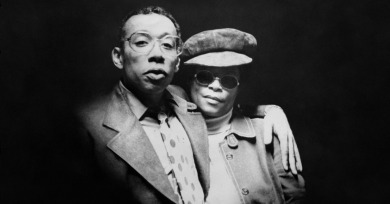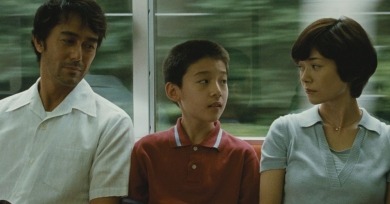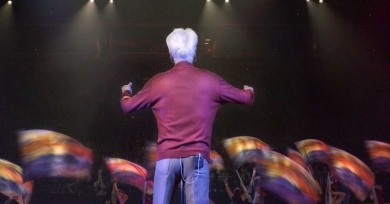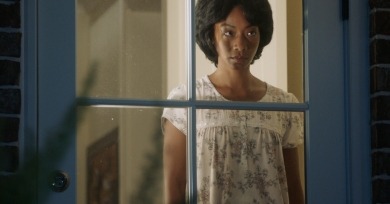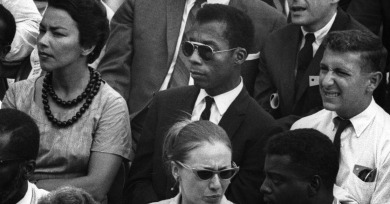Reviews
Graduation drops viewers firmly in contemporary Romania, and offers the image of a nation where the trappings of modernity have been uneasily papered over a people and culture with a deep history of patriarchal tribalism.
The first live-action take on the material, a big-budget Western production from Paramount and DreamWorks, is a worthy addition to the canon, if still exceedingly dubious in a number of its particulars.
It is hard not to perceive something darkly subversive in the making of a film in which a beloved cinematic icon sits in bed, made up like a poodle and festooned in wig, frills, feathers, and fabrics, rotting away from gangrene while a whirlwind of bland and ill-equipped hangers-on try vainly to keep him preserved.
What happens when audiences have come to expect long-simmering, historically engaged Gesamtkunstwerks from a filmmaker and then are treated rapid-fire to a series of increasingly ungraspable present-day love stories? What is Malick doing in To the Wonder, Knight of Cups, and Song to Song, and why now?
By centering on Helen, the film has a feminist streak, a badly needed course corrective for a musical genre whose histories overwhelmingly stem from the perspective of men worshipping at the altar of other men.
Kore-eda has explained that his latest film, After the Storm, is an unofficial sequel to his 2008 drama Still Walking. Both films contemplate the fresh wounds left by a deceased family member on the living; the former takes place over the course of a single day, the new film over several weeks.
Assayas seems to have conceived this film as several genre pieces in one (a pseudo horror, a psychological thriller, a melancholy drama about grief), but each of these strands, incomplete in its way, serves a grander and fully realized purpose in the larger ontological excavation of Maureen.
Conceiving this project after giving a guard team permission to use his music in 2008, David Byrne enlisted the Ross brothers, with their actively observant style, to document this evening, melding two art forms into a new type of performance.
The premise serves as a malleable metaphor: the white coopting of black cool, cited as one of the reasons for the selection of exclusively black targets; the ongoing use of unwilling black bodies to perform white labor from plantation to penitentiary; and the pressures of conformity borne by the blacks living among white affluence.
There are pretty pictures, some interesting in broad-stroke conception, that are nonetheless leeched of those intangible qualities that would lend them genuine grandeur and thematic heft. As a result, they just sit there, heavy on the eyes, light on the heart and mind.
With the tone and care of the genuinely righteous, his voice was that of a herald, with writing that sliced through hypocrisy and the specific, tragic banality of American life with a swift condemnation that managed to touch the sublime.
There is high public interest in stand-up comedy, evidenced by the popularity of Louie, The Aristocrats . . . the ability of comics like Hannibal Buress and Amy Schumer to make headlines and the preponderance of specials on streaming services like Netflix. But the subject has been a hard nut for narrative features to crack.
The opening scene of The Lure cleverly reverses the age-old relationship between sirens and their prey. It hints that it is the fishtailed siblings who are being musically mesmerized, rather than the other way around.
Staying Vertical is an aggressively conceptual cycle-of-life saga that brings the director back to his earlier model, in which characters ramble through a freeform narrative with no fidelity to logic.




